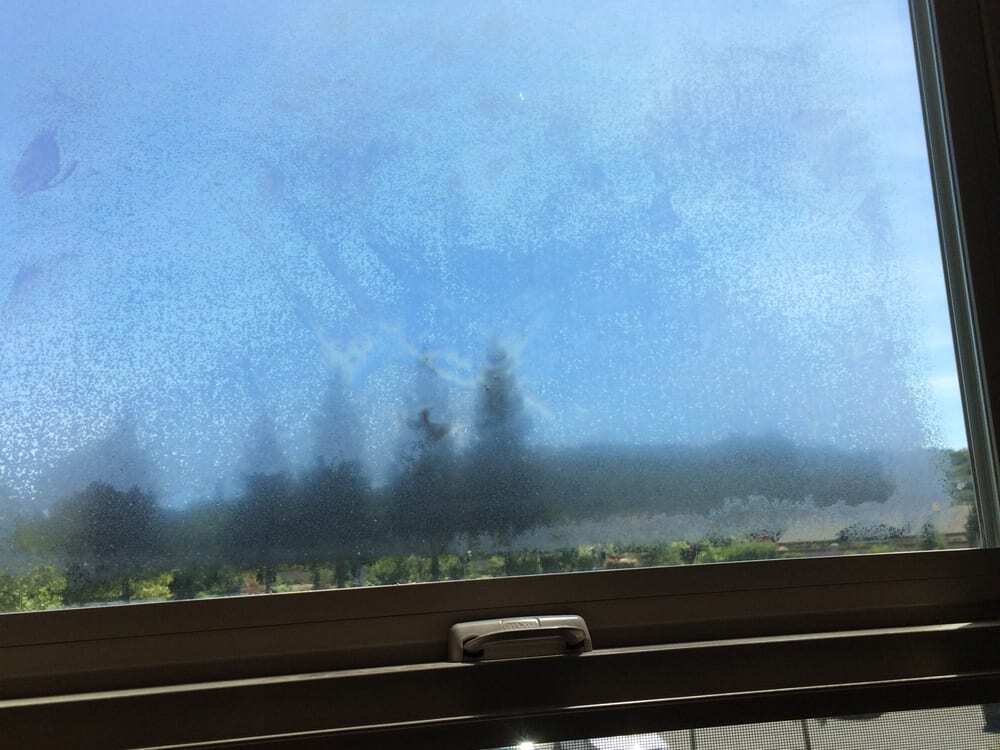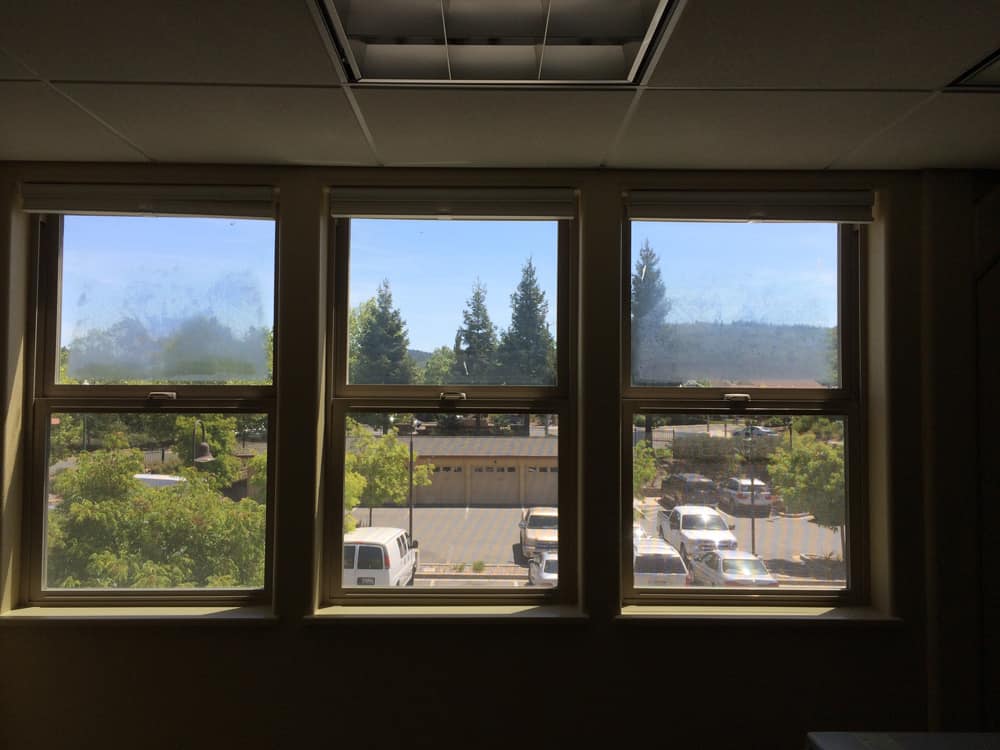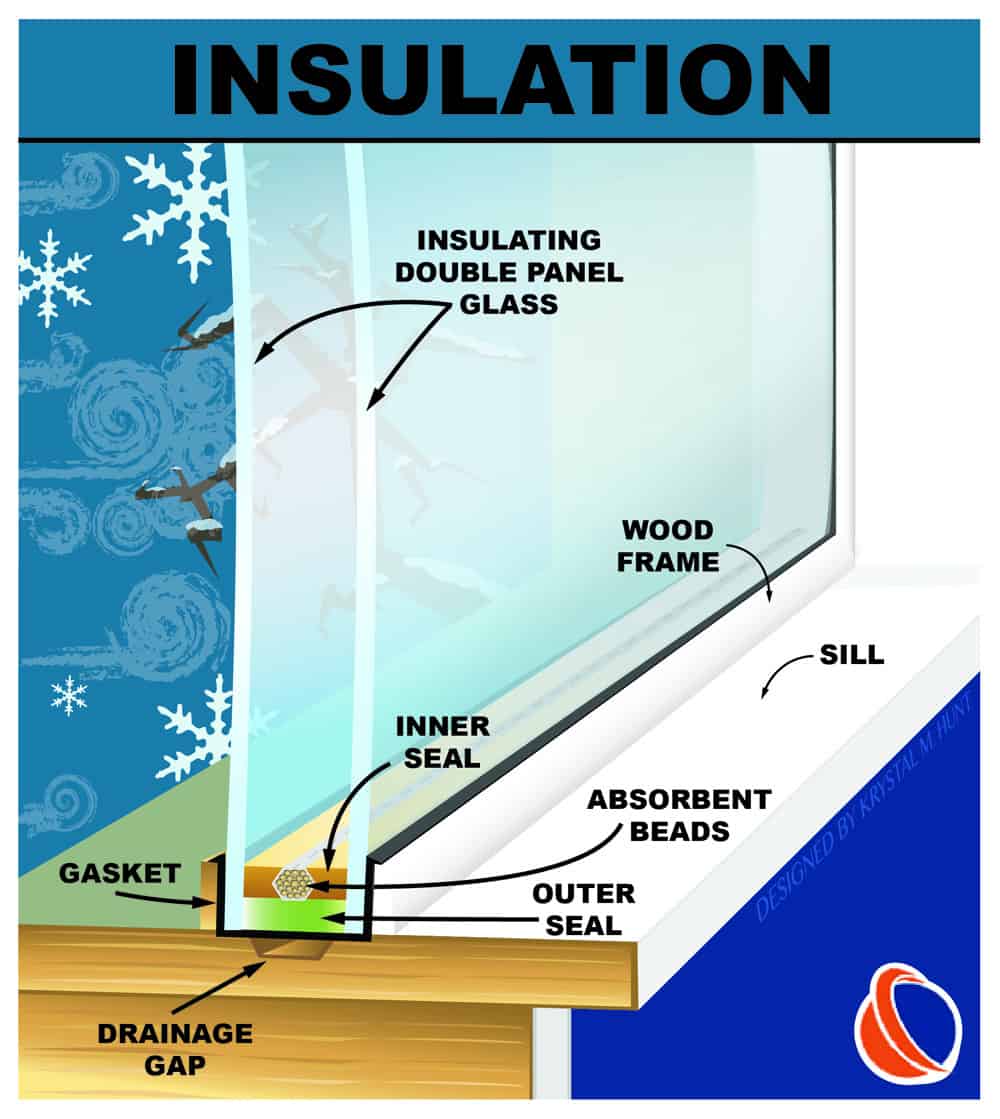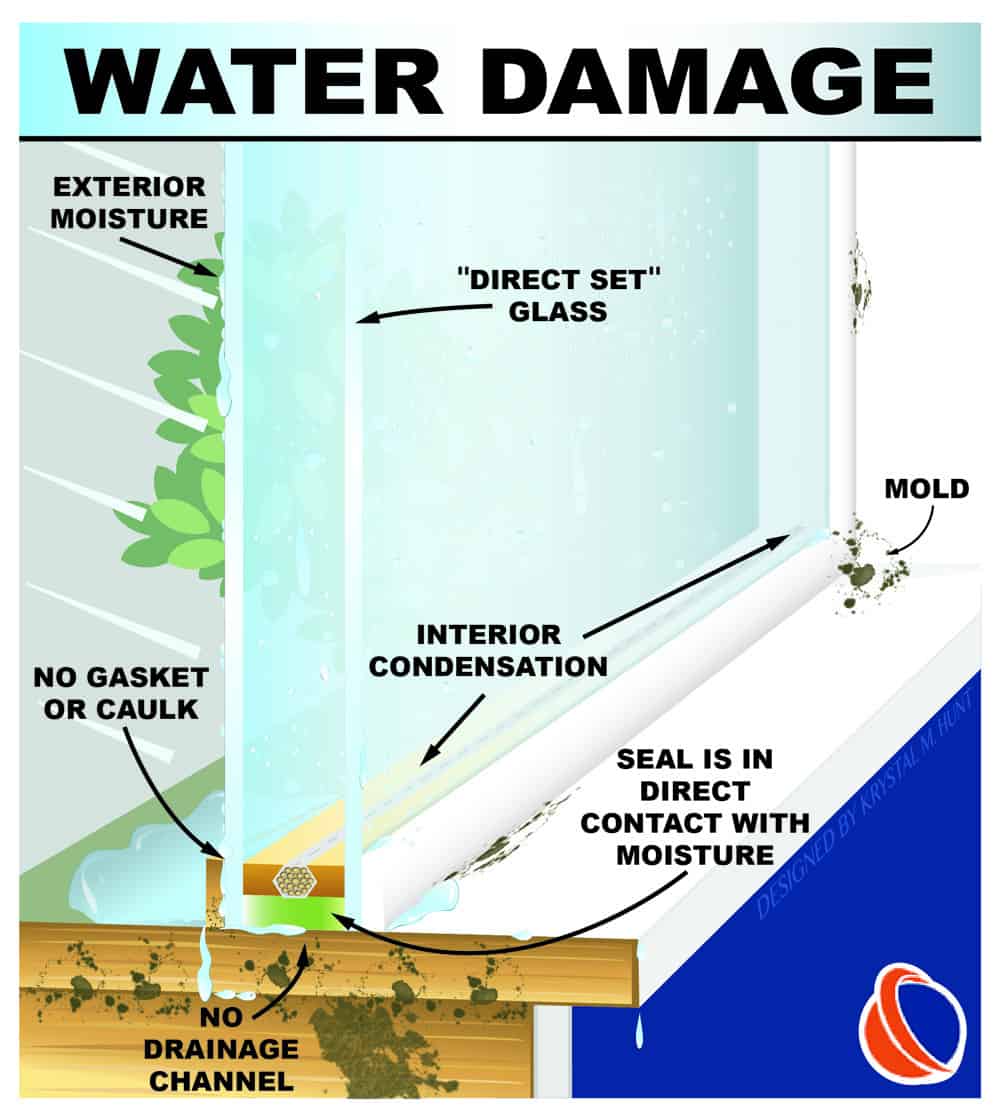Your windows are supposed to be your gateway to the outside world but instead, you’re looking through a hazy distorted looking window. You may have tried to wipe the inside of the window with a cloth and even tried the same on the outside, but nothing happens. What happened? It’s not uncommon for dual pane window units to experience what is known as a “Seal Failure.” The cloudiness fog you see may be very minimal now but over time, the window will only become worse as the haziness spreads and becomes thicker.




Glass itself is a lousy insulator. In fact, a single pane of glass by itself has an R-value of about 1. If you want to learn more about R-Value check out this link, but basically R-value measures a materials’ ability to slow heat loss. So in order to improve this factor insulated glass was created, often called “IG” , “double-pane”, or “Thermopane” glass. By taking two pieces of glass and adding a sealed air space between them that improves the R-value to about 2.
Modern insulated glass is created by taking two panes of glass and bonding them together with a sealant bead around the glass perimeter, leaving a ½” to ¾” space between them. Most dual pane windows have two seals around the perimeter, one on the exterior and one on the interior. This allows for a backup so that, just in case the outer seal fails over time, the secondary seal can keep the unit’s integrity. Along with the sealant, there is usually some kind of rigid tube or spacer most commonly made from aluminum. This tube keeps the two glass panes spaced properly. Also, these tubes or spaces may contain moisture-absorbing beads or desiccants to keep the windows from fogging up in the case that moisture does penetrate the outer seals. However, if too much moisture penetrates the interior airspace, the desiccants can become saturated and stop working, which will allow the window to fog.


Your windows have to deal with a lot every day. Temperature shifts, from hot to cold, can cause the windows to expand and contract. The sealant material may become brittle in the cold and in the heat it may melt. Your windows have to stand up to wind, rain, hail, intense sunlight, ultraviolet rays, old age, crazy kamikaze birds, and random golf balls. However, dual pane windows are tough, only 1% of dual pane windows fail after 10 years, and after 15 years that rate rises to 15%.
What causes the most trouble with dual pane windows is old, cheaper window units, and improperly installed units. The most common causes of seal failure are:
- Old Age. Even the most robust sealants will break down over time and become brittle. When this happens the flexible seal will allow moisture into the window unit.
- Excessive Water Exposure. Windows that do not have proper drainage to keep water from puddling around the seals will suck the moisture into the window units during expansion and contraction events.
- Heat. Most windows with direct sunlight exposure fail more often. Heat causes the window units to expand and contract, this process breaks down the window seals. It softens and weakens the seals until they develop a crack which allows moisture in or the sealant basically oozes away.
What can you do? Unfortunately, when a window unit has a seal failure, the best option is replacement. Not much can be done once you have a seal failure. Usually, most people wait until they can’t take the fogginess anymore since the process is a slow gradual one. The typical lifespan of a dual-pane unit is 10 to 20 years. Most decent window manufacturers offer long window warranties, with some even offering a “lifetime” warranty.
You can regularly examine the window glass, frame and seals for damage. You may be able to spot damage and you can use caulking to repair the damaged area which will help prolong the life of your dual pane windows. Also, make sure to check for clogged drainage holes in the window frames, these can be clogged by dirt and debris, and make sure that water drains away from the window itself, check your irrigation, your windows don’t need a shower every morning.
The best safeguard however is to purchase high-quality windows.
What do you think: did we miss anything? Have anything to add? Let us know in the comments.




